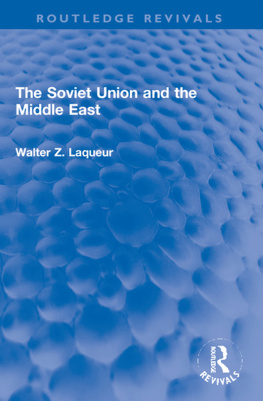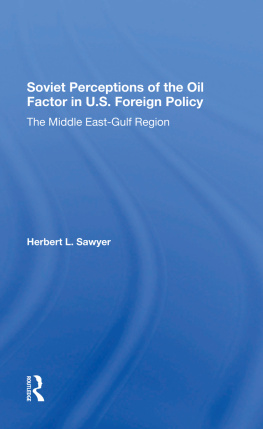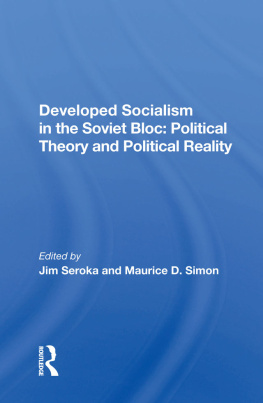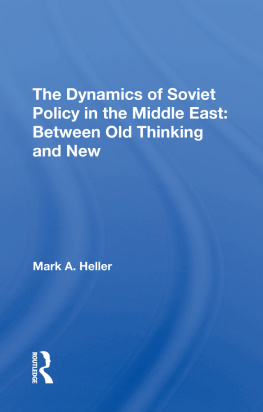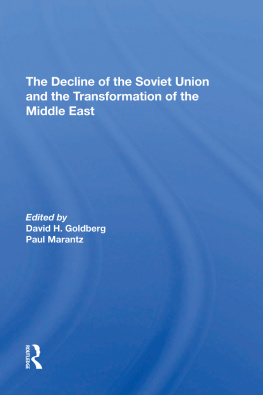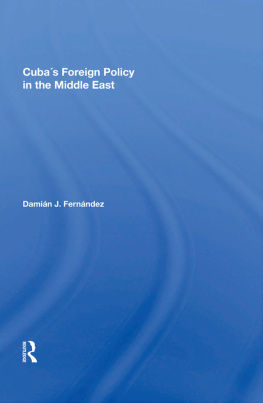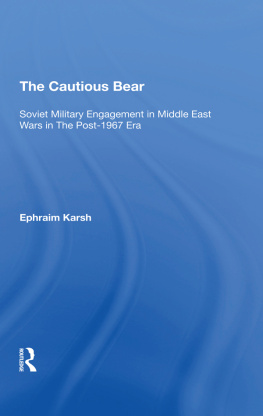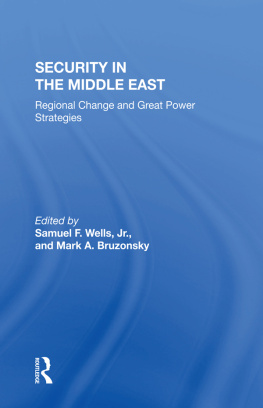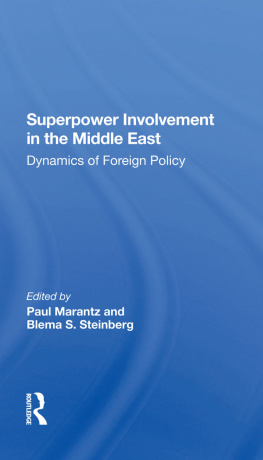Routledge Revivals
The Soviet Union and the Middle East
First Published in 1959, The Soviet Union and the Middle East attempts to shed light on the evolution of Soviet attitudes toward the Middle East, its problems, challenges, and opportunities since 1917. Divided into two parts, the first part The Soviet Image of the Middle East presents an investigation into the sources of Soviet policy in that area, while the second part The Great Breakthrough explores the political, social, and economic conditions in the Middle East. The volume deals with themes like storm over Asia, the arms deal, the year of Suez, the Syrian Crisis of 1957, Soviet trade and economic aid (1954-1958), Soviet cultural policy and the intellectual climate in the Arab world, communism in the Middle East (1955-1958) and communism and Arab nationalism, to ask larger questions like did the Soviet Communists expect the revolutionary events in Asia? Were they instrumental in bringing them about or did they occur quite independently? This book will be of interest to scholars and researchers of political history, international relations, West Asian Studies, Russian Studies, and history of communism.
The Soviet Union and the Middle East
by Walter Z. Laqueur
First published in Great Britain 1959, Routledge & Kegan Paul
First published in the United States of America 1959
by Fredrick A. Praeger Inc Publisher.
This edition first published in 2021 by Routledge
2 Park Square, Milton Park, Abingdon, Oxon, OX14 4RN
and by Routledge
605 Third Avenue, New York, NY 10017
Routledge is an imprint of the Taylor & Francis Group, an informa business
Copyright 1959 in the United States of America by Fredrick A. Praeger Inc.
All rights reserved. No part of this book may be reprinted or reproduced or utilised in any form or by any electronic, mechanical, or other means, now known or hereafter invented, including photocopying and recording, or in any information storage or retrieval system, without permission in writing from the publishers.
Publishers Note
The publisher has gone to great lengths to ensure the quality of this reprint but points out that some imperfections in the original copies may be apparent.
Disclaimer
The publisher has made every effort to trace copyright holders and welcomes correspondence from those they have been unable to contact.
A Library of Congress record exists under LCCN: 59007304
ISBN 13: 978-1-032-05015-7(hbk)
ISBN 13: 978-1-003-19564-1(ebk)
ISBN 13: 978-1-032-05016-4(pbk)
The Soviet Union and the Middle East
BY WALTER Z. LAQUEUR
BOOKS THAT MATTER
First published in the United States of America in 1959
by Frederick A. Praeger, Inc., Publishers
15 West 47th Street, New York 36, N. Y.
1959 in the United States of America
by Frederick A. Praeger, Inc.
All rights reserved
Library of Congress catalog card number 59-7304
Printed in the United States of America
This book is Number 81 in the series of Praeger Publications in Russian History and World Communism
This study was prepared under grants from the Rockefeller Foundation and from the Russian Research Center and the Center for Middle Eastern Studies of Harvard University. Rights of publication by the Harvard University Press were waived in this instance because of previous contractual obligations of the author.
Wahnsinn ruft man dem Kalchas, und Wahnsinn ruft man Kassandren,
Eh man nach Ilion zug, wenn man von Ilion kommt.
Wer kann hoeren das Morgen und Uebermorgen? Nicht Einer!
Denn was gestern und ehgestern gesprochenwer hoerts?
GOETHE: Weissagungen des Bakis
Those who read history with an eye to its continuities only would be inclined to regard the present clash of power interests in the Middle East as being merely the latest recrudescence of the age-old Eastern Question. They would recall, for example, that Russian interest in that question dates back to the eighteenth centuryto go no furtherwhen the Ottoman Empire was already on the defensive. They would invoke the aspirations of the Slavophiles, for whom the Eastern Question became the decisive issue and its solution Russias manifest destiny. They would remind us how the Slavophiles came to regard the Eastern Question as the dynamic center of Russian history, the main impulse to Russias social development, almost as being identical with the development of Russias own national self-consciousness.
And yet, for all the evidence one may adduce from the past, such a view of the present crisis in the Middle East is unhistorical perhaps dangerously so. The fact is that the Eastern Question of our day has little in common with the Oriental problem that preoccupied the chancelleries of Europe one hundred years ago. To be sure, the conflict between Russia and the West still persists, but it is no longer the same Russianor, for that matter, the same Westwhich contests the area. The center of the conflict has moved southward from the Balkans and Constantinople, and the stakes are vastly different. The question of the nationalities and minorities in the old Ottoman Empire has been solvedor, to be more accurate, shunted aside. The strategic interests of the powers no longer take the same form, involved as they are in such new issues as Arab nationalism and oil, Communism, and the emergence of Israel as a state. In all these respects, not to mention others, Gorchakov, Dizzy, or the Iron Chancellor would nowadays find the Near and Middle East a problem far more baffling than anything they knew in their day.
The two essays published in this book constitute part of a larger project and represent an attempt to shed light on one of the crucial aspects of an essentially novel problemi.e., the evolution of Soviet attitudes toward the Middle East, its problems, challenges, and opportunitiesin the hope that this may provide a clue to the plans and objectives of Soviet foreign policy in that area. By attitudes I mean the complex of analyses, views, and hopes which have taken hold upon the minds of Soviet leaders from Lenins time until now, particularly as they were embodied in the work of the Soviet Middle East specialists who have supplied the Soviet public and leaders with professional expertise on the area during this period.
A word of explanation and caution is in order at this point. Any survey of the externals of Soviet foreign policy in the Middle East, however important and interesting in itself, is hardly likely to shed much light on Soviet motives and expectations in that part of the world. That policy, like any other, is based on certain fundamental assumptions which seldom, if ever, become apparent from a reading of official documents, speeches, or even day-to-day measures. To understand it, one must turn to the doctrinal discussions and pronouncements frequently ventilated in public in Moscow over the last forty years. But, it may be asked, have these ideologues been really important in the making of Soviet foreign policy? The element of skepticism implied in such a question is based on a misconception. It assumes a strict division of labor between the ideologists who haggle over fundamentals and the diplomats who act merely as the executors of a given line when it has been adopted, and from this the skeptic draws the conclusion that the work of the ideologues is a mere epiphenomenon and that doctrine has no real bearing on the formulation of actual policies. Both the assumption and the conclusion are reinforced whenever it happens, as has been the case in recent years, that the views of the ideologues are belied by some new turn in Soviet policy. Such developments easily encourage the delusion that ideology is no longer of much relevance in the Soviet Union and that its foreign policy can best be interpreted in traditional terms. Facile comparisons with Tsarist Russia (especially its activities in the Middle East) are, of course, always available for this purpose. Nevertheless, all attempts to account for Soviet foreign policy without due regard to the ideological factor are ultimately sterile; their only effect is to make a complicated phenomenon even more incomprehensible. The Soviet Union is not a state comparable to Western states; any attempt to regard it as such is bound to produce misleading conclusions. If the importance of the professional ideologues has declined over the years in the field of foreign politics as elsewhere, all that has happened is that their monopoly has vanished. It does not mean that ideological motivation has disappeared.

